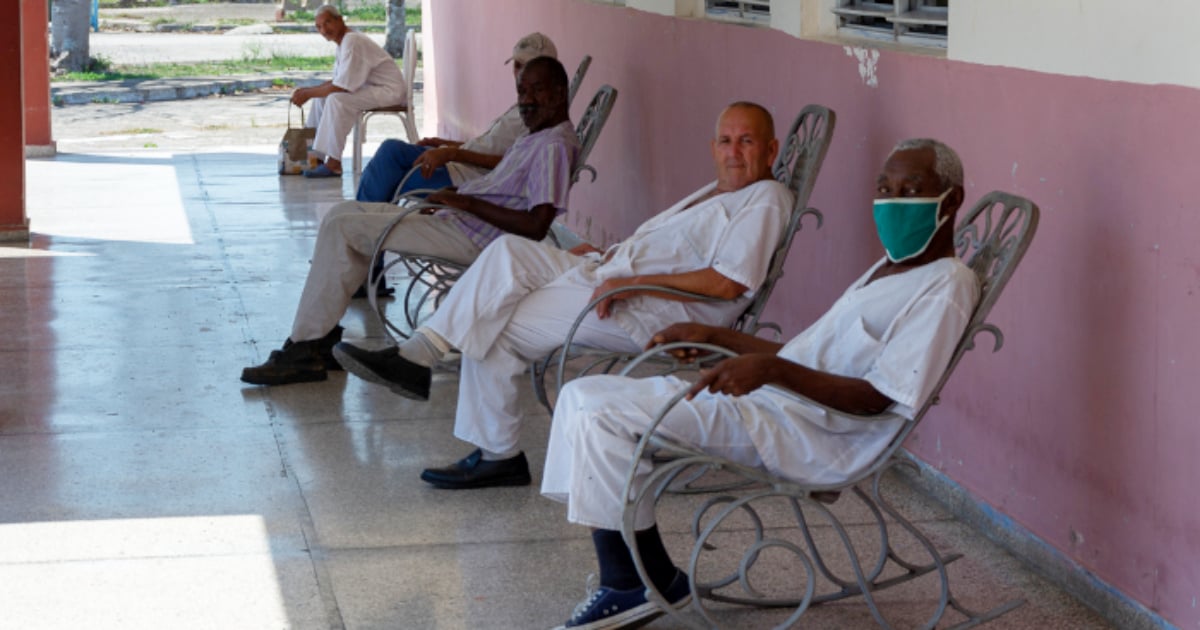A Cuban mother has raised serious concerns about the inadequate staffing and poor conditions plaguing the René Vallejo Ortiz Psychiatric Hospital in Camagüey. She brought her son to the facility following a severe crisis that required specialized care. However, the situation quickly deteriorated when doctors concluded that her son needed to be admitted for electroconvulsive therapy (ECT), commonly known as electroshock treatment.
"Mom, please don't admit me to that ward; I'll only get worse," her son pleaded upon seeing the state of the ward, where the bed was broken and filthy. According to the mother, Rosa León Ferrales, the "environment" of the ward was far from suitable. There was only one healthcare assistant responsible for all the patients, many of whom were "out of control" due to a lack of medication.
Severe Medication Shortages
"As you know, there are no medications available, only Fluphenazine," stated León Ferrales. Fluphenazine is an antipsychotic drug used to treat schizophrenia and psychotic symptoms such as hallucinations, delusions, and hostility. Faced with this grim scenario, the mother decided to discharge her son immediately, assuming full responsibility. León Ferrales mentioned that during previous crises, her son had received ECT as an outpatient. However, this option was no longer available in the public health system due to frequent power outages.
"They're only providing outpatient treatment to select cases, and we all know who gets those treatments," the mother alleged, suggesting that such therapies, like many other treatments in Cuba, are reserved for the privileged, well-connected, or those who can afford to bribe corrupt officials within the public health system.
Neglected by Medical Professionals
Determined to take her son home despite his mental health crisis, the mother sought alternative solutions from the attending physician, whether in the form of medication or other treatments. The specialist, however, refused, stating that by discharging her son against medical advice, the hospital would not assume responsibility for his care. León Ferrales condemned the doctor's behavior as irresponsible, accusing him of abandoning the patient by denying necessary medical treatment because she refused the risky hospital admission.
She also highlighted other service irregularities, including mistreatment, a shortage of nursing staff, and a lack of beds. "This is how the country is being run," León Ferrales concluded in her social media post.
Widespread Neglect and Abuse
The psychiatric hospital in Camagüey has been the subject of numerous citizen complaints. In May, a social media post revealed harrowing conditions at the facility. According to the news portal CubaNet, photos shared on Facebook showed patients tied to chairs and gurneys due to a lack of sedative medications, necessitating the use of electroshock therapy for many.
"This is how patients are treated at the René Vallejo Ortiz Psychiatric Hospital in Camagüey. Due to a shortage of sedative medications, they are applying electroshock therapy to many patients and keeping them restrained," the post emphasized.
The images depicted patients sleeping on beds without mattresses, wandering the halls disheveled, dirty, and barefoot. Bathrooms lacked basic hygiene, with dirty toilets and unsanitary sinks and hallways. These conditions starkly contrasted with the idealized image presented by the official press just weeks earlier. At the time, the hospital celebrated its 52nd anniversary, with an article from Radio Cadena Agramonte lauding it as "a pioneering institution in mental health care in Cuba, marking over half a century of commitment to the psychological well-being of its patients."
Additionally, other reports have surfaced about the mistreatment and poor living conditions of patients with mental disorders in hospitals like the Amalia Simoni, also in Camagüey. A shocking video released by the Cuban Observatory for Human Rights (OCDH) revealed patients being abused by the staff at that facility.
In February 2023, independent media exposed a scandal highlighting the collapse of public health services in Cuba. A report from CubaNet revealed the deaths of at least 13 patients at the Holguín Psychiatric Hospital, who succumbed to symptoms of malnutrition, anemia, and bronchopneumonia.
